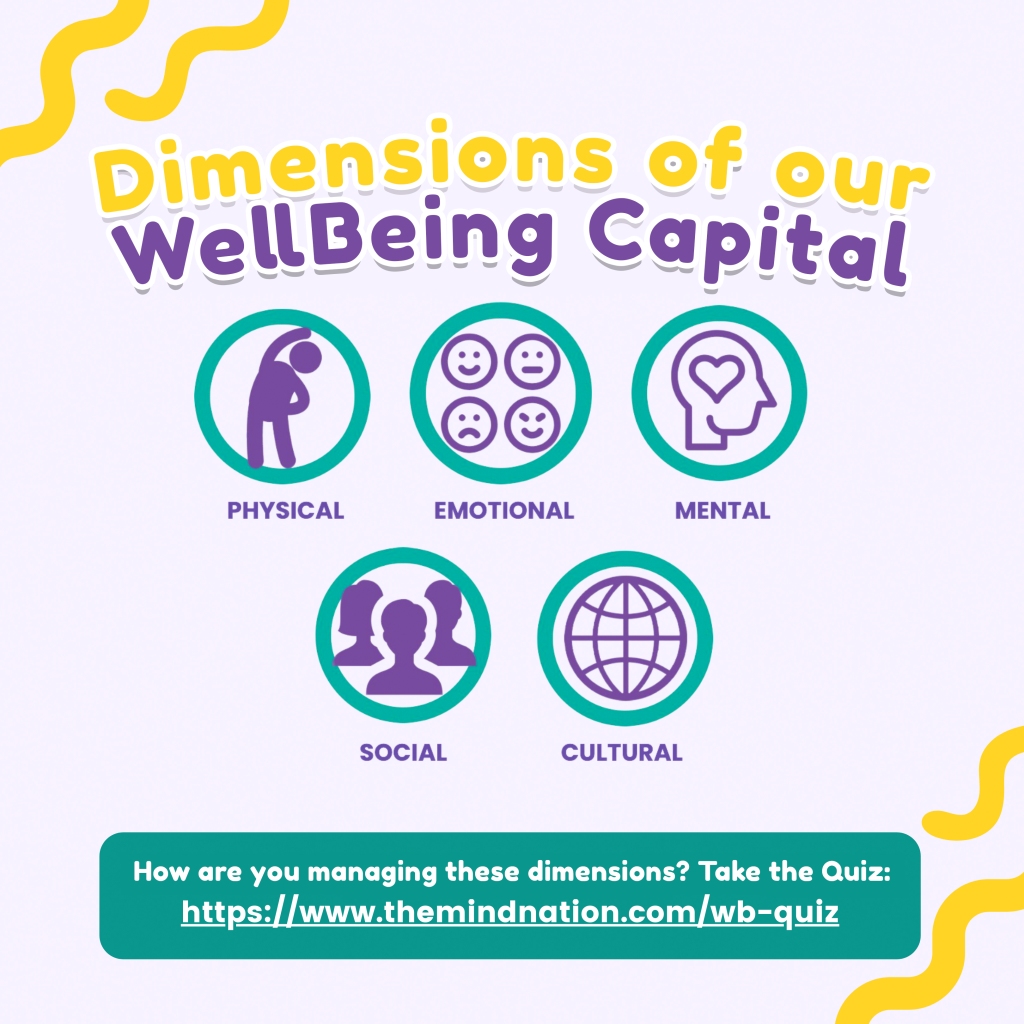Mental agility is all about taking in change and finding the best course of action to move forward despite undesirable circumstances. It also means successfully overcoming difficulties so you can achieve what you wat out of life.
How do you improve your mental agility and achieve a thriving state of well-being? By balancing the five different dimensions of our WellBeing Capital®:
Physical Wellbeing: This is ensuring that you have a safe place to live, enough to eat, adequate clothes and access to transportation. Other aspects of the physical capital includes having good physical and financial health.
Emotional Wellbeing: This is more or less who YOU are and what you feel. It includes your values, skills, knowledge, experience, education, interpersonal skills, and problem-solving abilities.
Mental Wellbeing: To be mentally well is to create authentic happiness in our lives and tune into our feelings.
Social Wellbeing: This refers to the connection and relationship that we have with others. When you feel a sense of belonging, you increase your mental health.
Cultural Wellbeing: This is all about the support you get from your community, your happiness in it, your workplace culture, and your country. It means that what you are doing at work is aligned to your reason for being.

Self-care to boost your WellBeing Capital®
To build your mental agility and overall well-being, you have to make sure all of the above dimensions are functioning to an extent. This is where self-care comes into play. We must make self-care a habit so that the next time we’re faced with stress in any aspect of our WellBeing, we have enough self-regard to step back and work on what’s missing.
I used to think of self care as something that I had to deserve. That I can only allow myself to rest and recuperate when I’m tired or burnt out. But when you’re already burnt out, a weekend or a day off isn’t going to cut it anymore.
Instead, make self-care a daily habit through the following ways:
- Keep your mind and body in check. Listen to what your body needs; if that’s extra time to breathe or a little stretch in the morning, do it. But don’t overdo it; always remember that rest is productive too.
- Limit your news intake. We don’t need that much information, all we need is to be informed well enough for our peace of mind.
- Social distancing does not mean emotional distancing. Please do keep connected, and as much as possible CALL. Hearing someone else’s voice, especially someone we love, can give us instant calm and we need.
- Get some sun. Feeling locked up isn’t the best thing for our sanity, so only if you can and only if it’s safe, open the window and bring in that vitamin D.
- Meditate. Simple acts of breathing, grounding, and being aware of our surroundings can make us less anxious and bring us back to what we need to address. Prayer is one very practical way we can apply mindfulness to daily life.
- Cultivate an attitude of gratitude. Be grateful for anything and everything good. Starting or ending your day with a grateful mindset will only set you up to see things in a better light.
Taking good care of all aspects of your life is paramount to achieving improved mental agility. If your physical, emotional, mental, social, and cultural dimensions support one another, it will increase the likelihood that you stay healthy and face uncertainties with more resilience. The key here is to always have that unconditional self-regard: to understand that there should be no ‘ifs’ or ‘buts’ in taking care of ourselves. Now more than ever, we have to put utmost value on our well-being.
How’s your well-being today? Take our FREE WellBeing Quiz! It’s a simple True or False test that can be completed in just 2 minutes. Visit here to get started.



















